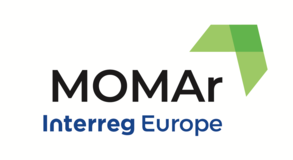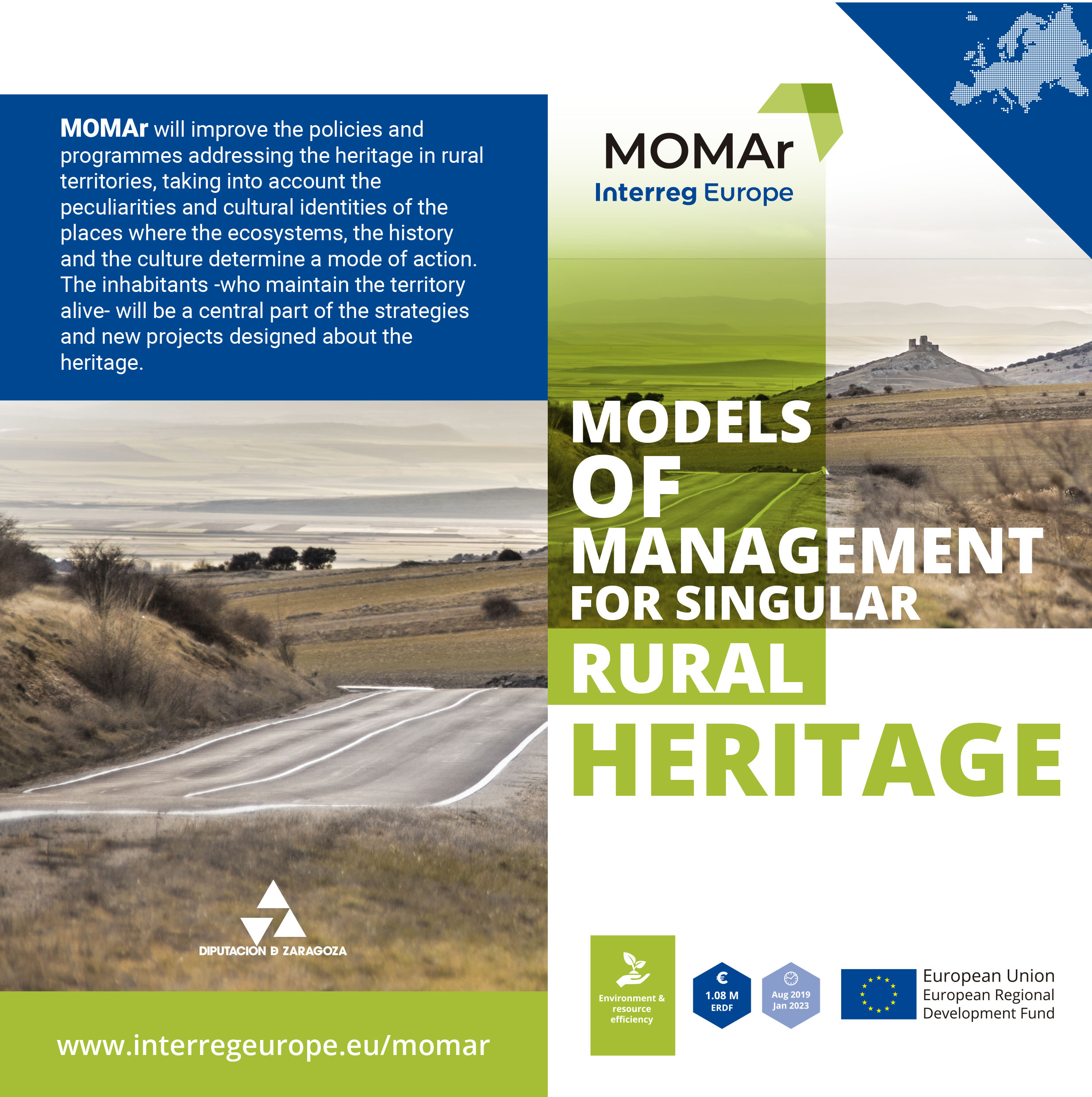The lead partner, the Provincial Government of Zaragoza (DPZ), together with some of the Spanish stakeholders participated in a debate to explore the possibilities of rural tourism to fight depopulation. The event was held by the Spanish national radio station Cadena SER and streamed Live on Youtube from a stunning stage: the Veruela Monastery in Zaragoza province.
 The panel ‘Management of tangible and intangible heritage as a tourist attraction’ allowed Isabel Soria, Cultural Heritage Expert of DPZ and scientific coordinator of MOMAr, Julio Zaldívar, manager director of Tarazona Monumental Foundation and MOMAr’s stakeholder, and Reyes Ávila, representative of Sierra del Moncayo Oil Designation of Origin, to explore the importance of heritage in the development of rural areas, and the need to consider it as a tourism asset.
The panel ‘Management of tangible and intangible heritage as a tourist attraction’ allowed Isabel Soria, Cultural Heritage Expert of DPZ and scientific coordinator of MOMAr, Julio Zaldívar, manager director of Tarazona Monumental Foundation and MOMAr’s stakeholder, and Reyes Ávila, representative of Sierra del Moncayo Oil Designation of Origin, to explore the importance of heritage in the development of rural areas, and the need to consider it as a tourism asset.
Soria started her intervention by presenting MOMAr project and explaining how the actors involved are working to place heritage as a driver for the economy, society, and culture development, and enrichment. “Yesterday mining or agriculture were our main resources but today, heritage can become our best option for the future”, defended the heritage expert. Besides, she highlighted the need to sensibilize the population about their own heritage to make them its best ambassadors.
In that sense, Julio Zaldívar added: “From the small towns, we need to start to build our self-esteem and realize that we have real wonders on our territory”. From his side, the oil producer expert pointed out the common understanding of heritage as just monumental, forgetting the enormous value of intangible and natural heritage, for instance, gastronomy or landscape.

To the question, if the youngers are nowadays involved in the heritage knowledge, the three experts agreed that there is a big work to do to translate the academic or old-fashioned narrations into modern storytelling, more emotional, sensory, and inevitably, placed on social media and digital platforms. Reyes Ávila concluded: “We can’t forget that we must interest people”.
The discussion focused then on the need for the use of education in heritage to democratize its access and enjoyment. Tarazona Monumental Foundation gave an example on this matter, their Heritage Education programme. With it, the organization works closely with local schools to include on the educational curriculum the identity and belonging of local heritage at the very first age of students.
The session offered three more panels that explored other topics such as literature and culture as a touristic attraction, tourism on the local politics, and entrepreneur in the rural tourism sector, where another MOMAr stakeholder participated: Girola Servicios Turísticos.
For further information click here (link in Spanish).












